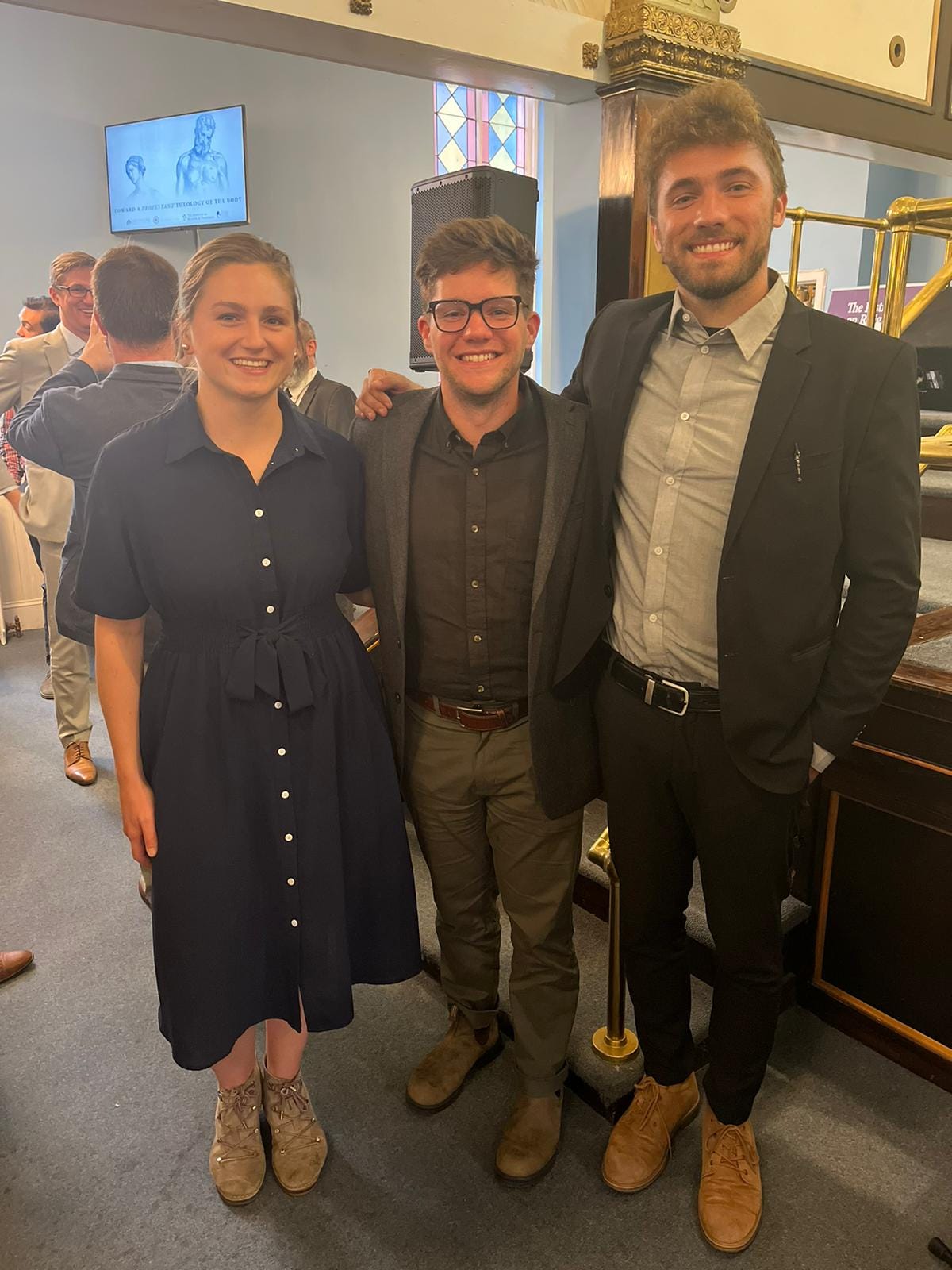Toward A Protestant Theology of the Body: Recap & Write Up
In case you missed it...
Friends,
It’s been a full summer and an even fuller August.
After I returned from my July travels, all of my attention shifted to finalizing plans and details for the “Toward a Protestant Theology of the Body” Conference (hosted by Greystone Theological Institute, Institute on Religion and Democracy, and Church of the Resurrection). I met with speakers and sponsors to finalize presentations and schedules; I enlisted volunteers to help with day-of plans; I planned menus and receptions; and I sent a LOT of emails.
Though I have been thoroughly convinced of the value of and need for theology of the body in Protestant spaces, to be honest, I was a bit worried that there would be a small turn out at the conference. Our initial goal was to get 50 in-person attendees.
However, by the day of the conference, our goal was more than met. We had tripled that number. Over 150 in-person attendees showed up.
Really, I can’t tell you just how encouraging it was to meet so many thoughtful Protestants (of all ages and denominations) who are deeply interested in theology of the body. It was a dream come true.
Besides the content and the overwhelming turnout, the conference was great because it was the perfect chance to get the Perishable Goods team together! Steven, Lara, and I were all there.
And finally, as I joked with many folks, the conference was the perfect excuse to make and eat good food! Lara and I worked together to plan and cater the pre-conference reception—which was hosted at my house here in DC. It was such a delightful time and the food turned out great!
* * *
As one of my mentors noted, going from 0 to 1 is always the hardest. And I have to agree. From logistical planning to overall personal investment, the conference was as exhausting as it was exhilarating.
After a few weeks of rest and recovery, though, the Perishable Goods team is ready to get back to writing.
Cheers,
Jared
Below is the Perishable Goods write up of the “Toward a Protestant Theology of the Body” Conference.
Dr. Mark Garcia had the privilege and challenge of giving the first talk at this inaugural conference, entitled “Ordered to Joy: A Desiderata for a Protestant Theology of the Body.” Suffice to say, it was a rich medley of the beautiful order of creation. And what better place to begin than to define what a Protestant theology of the body actually entails?
Regarding the definition of “Protestant,” Garcia specified that the contemporary conversation was centered on a distinctly Reformed/Luthern tradition. The discussion, therefore, must include the question of Eucharistic presence—the presence of the Body and Blood of Christ—as a focal point on the doxology of gender and the humanity of Christ.
Garcia eloquently explained the concept of the body as well. The body is the medium by which we experience the world, and it is today’s sexual and political battlefield. He stressed that the body is given from without, not self-created, and therefore intrinsically bears dignity. Further, he enchanted our view of Leviticus by explaining the imagery of otherwise estranged biblical passages. For example, the figure of the woman displays the glory of God’s order. He also articulated a bodily exhaustion that is present today—an exhaustion that is the result of measuring of the body by production and consumption and which the Sabbath resists.
Finally, Garcia left his audience with a charge to have the courage to speak truth in the real world to real people—that is, to be embodied—and employ the Bible wholly. After all, the world depicted in the Bible is reality. A Protestant theology of the body, therefore, can perhaps be more fully grasped than its more Roman Catholic counterpart, for—as Garcia puts it—it lends itself to a more practical and scriptural attention to the lived realities and experiences of men and women sitting in the pews—meeting us, primordially, as we are: created beings of flesh and blood.
With an even-handed candor, Dani Treweek, in her presentation, “Both More and Less Than We Imagine: Eschatological Singleness and Human Sexuality,” unpacked how the Protestant tradition, for all its good, has itself contributed to bad thinking about human sexuality. She argued that by making more of sex (i.e., sexual intercourse: its beauty, its significance, etc.), Protestants have ultimately made less of sex (i.e., our sexual nature: what it means to be male or female outside of sexual intercourse). This, Dani argued, began with reformers like Luther who, in his zeal to reclaim marriage, reduced man’s sexual nature to an instinctual, lust-driven need for sexual intercourse for which marriage is the medicine. In their zeal to reclaim and reinvigorate sex and marriage and correct the errors and harms of Rome, the reformers were right to focus on how creation and sin inform marriage. However, to this day, few Protestants have considered how the promise of singleness in the age to come shapes the meaning of marriage and sexuality on this side of the resurrection.







